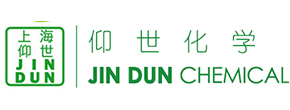Oilfield services giant is increasing its activities in the low-carbon energy sector
2023/6/27
The world's top oilfield service companies are now generating hundreds of millions of dollars in new energy business revenues, and each expects their new energy business revenues to jump into the billions of dollars by the end of this decade.
The oilfield services giant's subsurface and offshore drilling and digital technology expertise will help it execute projects in the clean energy business, analysts say.
As investment in clean energy has outpaced investment in fossil fuels, revenues for oilfield services companies with expertise in new energy projects will also increase.
The world's three largest oilfield services companies - Schlumberger, Halliburton and Baker Hughes - have established new energy divisions that work on geothermal, hydrogen, carbon capture and storage (CCS) and direct air capture technologies and projects.
Jeff Tillery, a partner at energy consulting firm Veriten, told the Wall Street Journal that oilfield service companies that focus on equipment and technology will naturally benefit from new energy businesses in the initial stages of the cycle.
These oilfield service companies are not giving up on oil and gas, and they expect to extend the exploration and growth cycle when it comes to energy security, but they say the new energy business could grow to 5 percent to 20 percent of all revenue by 2030.
For example, Baker Hughes CEO Lorenzo Simonelli said on the company's earnings call that the company secured nearly $300 million in new energy orders in the first quarter of 2023. New energy is expected to account for about 10 percent of Baker Hughes' natural gas technology orders within four years. By the end of the decade, Baker Hughes expects new energy orders to be between $6 billion and $7 billion, Simonelli said. By 2030, that will account for about 20 percent of all revenues.
The Baker Hughes executive said investment in new energy will be a driver of the current upward cycle for oilfield services companies, while financially sound operators focus on returns. Simonelli noted that "the current environment remains unique in that the spending cycle is more durable and less sensitive to commodity price volatility than previous cycles."
For Schlumberger, the new energy business was behind last year's rebranding of Schlumberger to reflect its transformation from an oilfield service provider to a global technology company that helps with the energy transition.
A few weeks after announcing the name change, Schlumberger CEO Olivier LePage told an investor day news conference that the world's largest oilfield service provider plans to rapidly grow its new energy business to achieve more than $3 billion in revenue by the end of the decade. Schlumberger is investing in a diversified portfolio of new energy businesses, aiming to make the business the largest division of the company in the future, LePage added.
Schlumberger has made progress on new CCS activities, increasing its global involvement in CCS projects to about 30.
The executive said during the company's first-quarter earnings call in April that more CCS projects are expected to move into the final investment decision stage over the next two years as the U.S. Inflation Reduction Act and other initiatives around the world gain momentum.
Schlumberger is working to accelerate the industrialization and scale-up of its proprietary non-aqueous solvent (NAS) technology, which improves the efficiency of absorption-based carbon capture. Last October, Schlumberger entered into a strategic partnership with Linde on the CCUS project to accelerate decarbonization solutions for the industrial and energy sectors.
The U.S. oilfield services giant has also partnered with Oman on a national strategy to develop the Middle Eastern country's geothermal resource potential.
Halliburton, the world's largest fracking service provider, is also actively involved in the evaluation of safe and efficient subsurface storage projects in the CCS sector.
Baker Hughes is exploring potential opportunities to expand new technology solutions for green hydrogen, green ammonia and geothermal projects. Baker Hughes also signed an agreement this year with HIF Global, an eFuels company, to collaborate on direct air capture (DAC). The two companies plan to test pilot installations of Baker Hughes' Mosaic DAC technology to accelerate commercial-scale deployment of DAC.
JIN DUN CHEMICAL has built a special (meth) acrylic monomer manufacturing base in ZHEJIANG province. This makes sure the stable supply of HEMA, HPMA, HEA, HPA, GMA with high level quality. Our special acrylate monomers are widely used for thermosetting acrylic resins, crosslinkable emulsion polymers, acrylate anaerobic adhesive, two-component acrylate adhesive, solvent acrylate adhesive, emulsion acrylate adhesive, paper finishing agent and painting acrylic resins in adhesive.We have also developed the new and special (meth) acrylic monomers and derivatives. Such as the fluorinated acrylate monomers, It can be widely used in coating leveling agent, paints, inks, photosensitive resins, optical materials, fiber treatment, modifier for plastic or rubber field. We are aiming to be the top supplier in the field of special acrylate monomers, to share our rich experience with better quality products and professional service.

